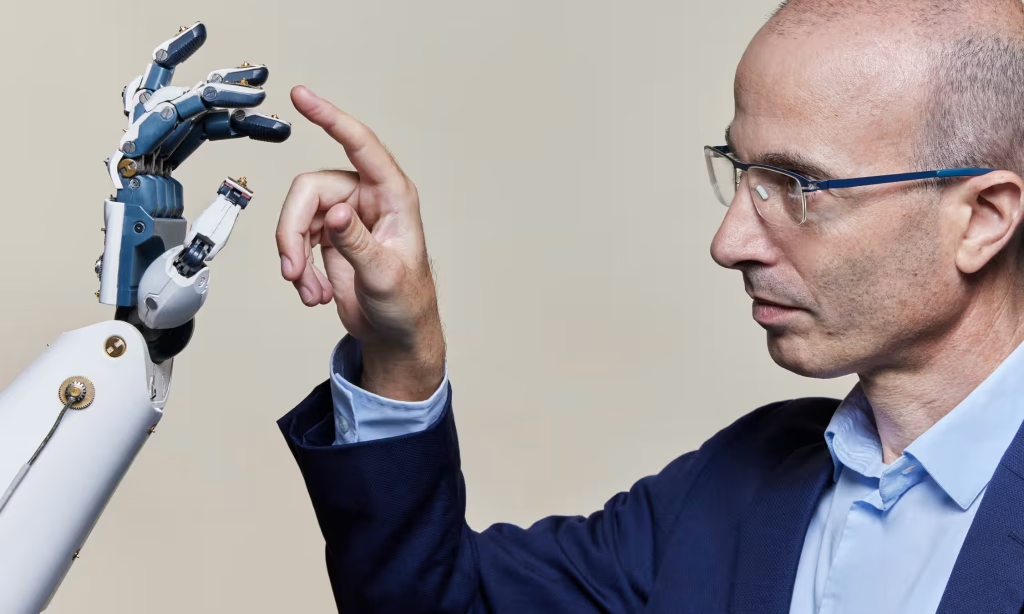In an extract from his upcoming book Nexus: A Brief History of Information Networks from the Stone Age to AI, Yuval Noah Harari warns that the rise of artificial intelligence poses significant threats to democracy and societal cohesion. He argues that while AI has the potential to address global challenges, it also risks exacerbating existing inequalities and creating new forms of control. Harari emphasizes the importance of understanding the historical context of information networks to navigate the current landscape, cautioning against summoning a power that humanity cannot adequately control. He highlights the necessity for collaboration and regulation to mitigate the existential risks associated with AI, suggesting that our collective failure to unite could lead to catastrophic outcomes for society and humanity as a whole.
Editor’s Note: Yuval Noah Harari’s stark warning about the dangers of unchecked AI development serves as a clarion call for urgent action to safeguard the future of humanity. His insights underscore the pressing need for a fundamental shift in how we approach technological progress, moving beyond the narrow confines of profit and power. As AI continues to advance at a breakneck pace, the potential for societal upheaval and existential risk grows exponentially. Harari’s historical perspective illuminates the cyclical nature of information networks and the consequences of humanity’s inability to govern them responsibly. To avert catastrophe, we must transcend our tribal instincts and forge a global consensus on the ethical development and deployment of AI. Failure to do so risks the erosion of democracy, the entrenchment of inequality, and the subjugation of human agency to the whims of a technological elite. The path forward demands a collective awakening to the gravity of the situation and a steadfast commitment to shaping a future where AI serves as a tool for the betterment of all, rather than the few.
Read Original Article
Read Online
Click the button below if you wish to read the article on the website where it was originally published.
Read Offline
Click the button below if you wish to read the article offline.
You may also like
-
Artificial Super Intelligence (ASI): Panacea or Disaster? Part 1: Setting the Context
-
Tony Blair Continues Push for Centralization of British Data
-
DARPA is Growing Large Structures in Space: What Could Go Wrong?
-
Take It Down Act Is A Double-Edged Sword
-
BBC Finds Chatbots Distort and Mislead About Current Affairs
